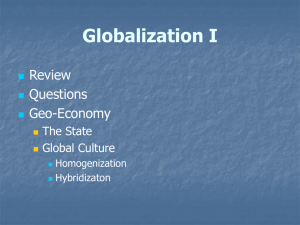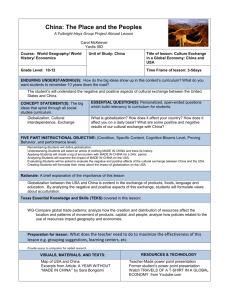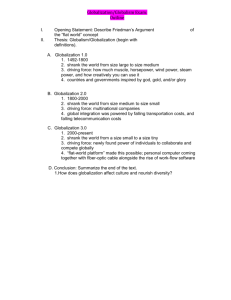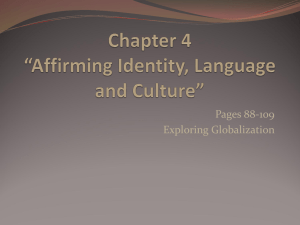Globalization Close Reading
advertisement
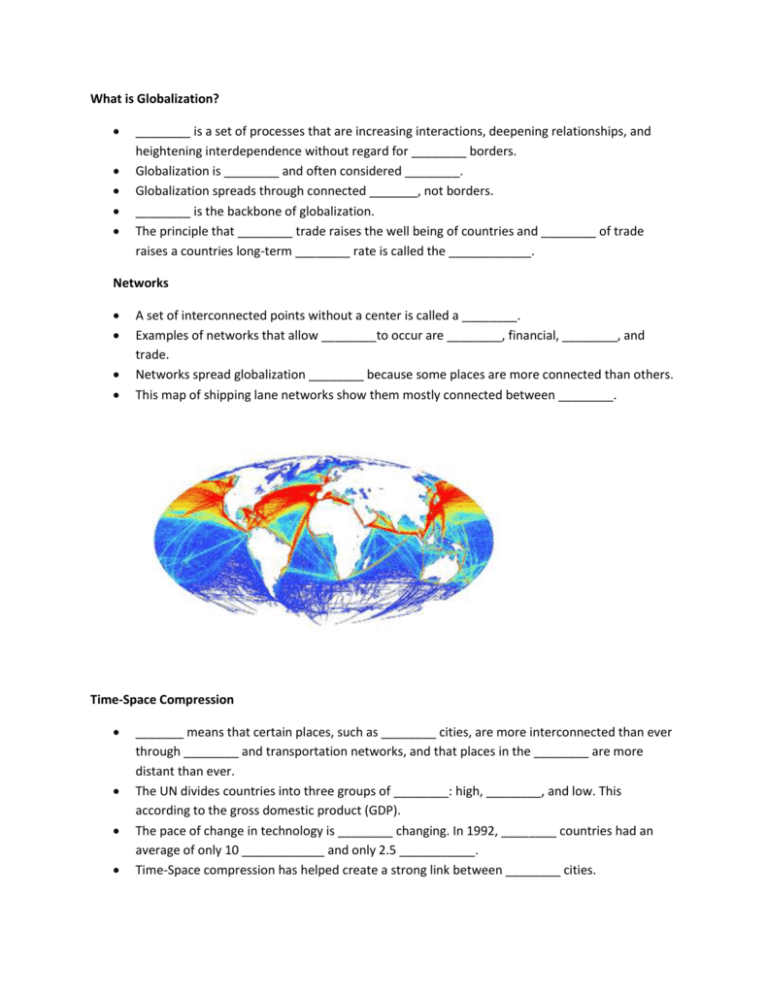
What is Globalization? ________ is a set of processes that are increasing interactions, deepening relationships, and heightening interdependence without regard for ________ borders. Globalization is ________ and often considered ________. Globalization spreads through connected _______, not borders. ________ is the backbone of globalization. The principle that ________ trade raises the well being of countries and ________ of trade raises a countries long-term ________ rate is called the ____________. Networks A set of interconnected points without a center is called a ________. Examples of networks that allow ________to occur are ________, financial, ________, and trade. Networks spread globalization ________ because some places are more connected than others. This map of shipping lane networks show them mostly connected between ________. Time-Space Compression _______ means that certain places, such as ________ cities, are more interconnected than ever through ________ and transportation networks, and that places in the ________ are more distant than ever. The UN divides countries into three groups of ________: high, ________, and low. This according to the gross domestic product (GDP). The pace of change in technology is ________ changing. In 1992, ________ countries had an average of only 10 ____________ and only 2.5 ___________. Time-Space compression has helped create a strong link between ________ cities. Networks in Development Nongovernmental organizations (NGOs) have created several ________ development networks in response to ________ made by the World Bank and the ___________________ (IMF). NGOs work toward __________________, the idea that locals should be included in the decision making of the development of their countries. Local Currencies People establish ___________ when they want to shape local development. They do this is the _____, periphery, and _________. In the 1980’s people in _________________, Canada established a local exchange trading system (LETS), when the two major employers of the area went __________. They then started a local currency in which people traded _________ and goods. This was separated from the _________ economy. The number of local economies in the world right now is over _______, mostly used in ________ areas. Media Networks _______ of goods and ideas on a global scale depends on global ________ and retail _________. Global media deals with a lot more than TV, ________, and print. They include _________ of entertainment, like theatres, record labels, ___________ systems, movies, and ____________ (GPSs). Companies like Disney, _______________, and Viacom use ____________ integration. This is when one corporation owns several other companies that are connected to it. Vertical integration limits the number of __________, which are people or companies that control access to _______________. When you buy a product from a store, the money they make goes to the _________ company. This is called ___________ integration. Global Identity _________ is defined as how we make sense of ourselves. We have ______, national, regional, and __________ identities. Even though the world is divided, _________ spreads quickly, and people feel ________ to places or people in which they have never met or gone to. When __________ happen all over the world, people who are near them feel the need to feel sad and to help. This shows that we are a __________ world, and that globalization has helped in the cause to help with these ________.


